I grew up in Ontario where we had a number of species of snakes; the largest, the Gray Rat Snake being about 2 metres/6.5’ long. I saw plenty of snakes in my childhood, none longer than four feet. I now live on a small island off the west coast, where we have three species of snakes, all under two feet long.
I have no experience with large snakes and issues with missing eggs or birds due to their predation. I come at this topic as both a chicken keeper and a naturalist. I empathize with folks who struggle with predators, but I can’t condone the eradication of wildlife when they inconvenience us. We are part of a larger ecosystem and it’s imperative that we learn to co-exist with the animals around us.
Killing snakes is illegal in many places. They are vital to a healthy ecosystem and help to control other pests around your yard. They may be problematic if we keep chickens, but snakes are also beneficial. You might be tempted to kill them but it’s better to keep snakes away from the coop and let them help you. They eat mice and rats and predators of chickens like weasels, and some snakes eat species of venomous snakes.
We can do a lot towards protecting both wildlife and our flocks by understanding what predators live in our area, how they work and how we can predator proof our coops and runs.
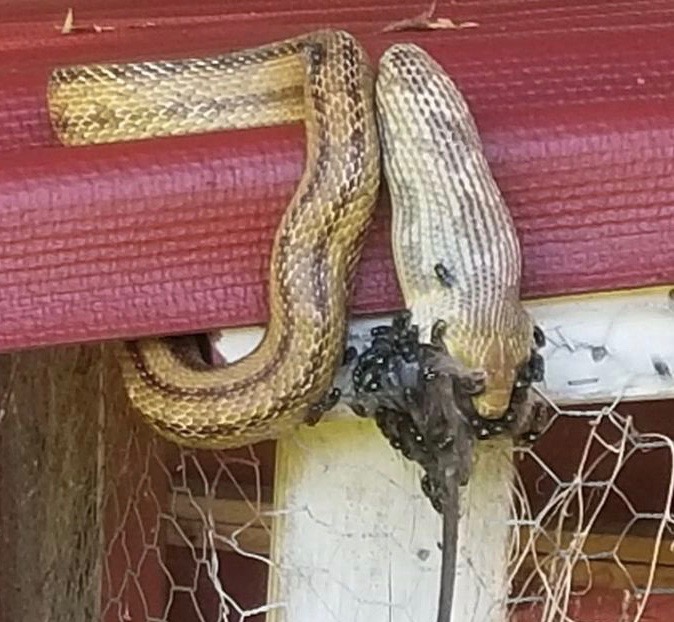

Remove Attractants
- Snakes usually don’t find a chicken coop because of the eggs, but if they do they’ll eat them. They usually stumble upon the coop while following rodents, which are attracted by fallen chicken feed and access to water.
- Minimize spilled chicken feed by storing in rodent-proof containers.
- Use a treadle feeder that the chickens have to step on to access food.
- Use traps, or get a cat, to reduce the rodent population.
- Keep baby chicks in a brooder and grow out pen constructed with ¼” hardware cloth.
- Collect eggs several times a day
- Snakes can hide in walls, cracks, and holes. Once they’ve discovered your coop they’ll continue to return, so block off their access.
- Cut long grass, move brush piles and trim dense bushes around the coop. When you clear a large area around your coop, it eliminates a way for snakes to get there safely and leaves them vulnerable to predators like birds of prey.
- Most snakes can climb trees. Trim back overhanging branches or anything else that could allow a snake to climb into the coop.
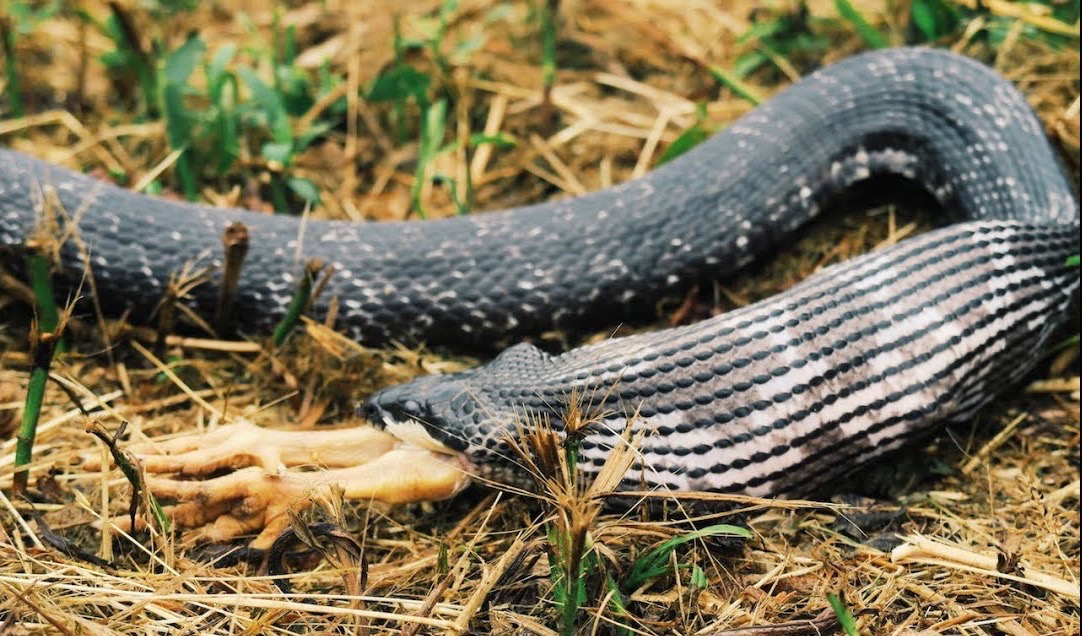
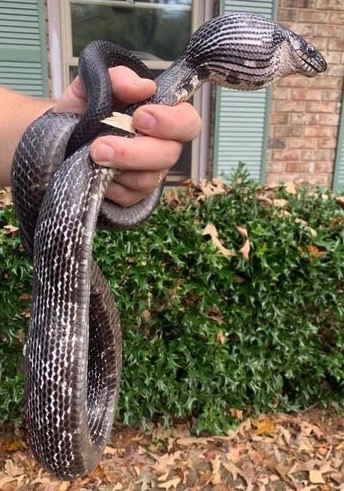
Amp Up Security
- Raise the the coop off the ground by at least two feet to keep rodents from digging under and giving snakes a place to hide.
- Place inverted metal funnels on the coop legs (similar to those used to deter squirrels from accessing bird feeders).
- Make sure that the floor and walls are sealed without gaps or other access points.
- If your coop is level with the ground add an apron which prevents other animals from digging into the coop. Use ½” hardware cloth connected to the exterior base of your coop with staple or screws. Extend the fencing out 20 inches from the coop along the ground, bury and cover with rocks.
- Place hardware cloth over vents and opening windows.
- Consider adding guinea fowl to your flock because they are natural predators of snakes.
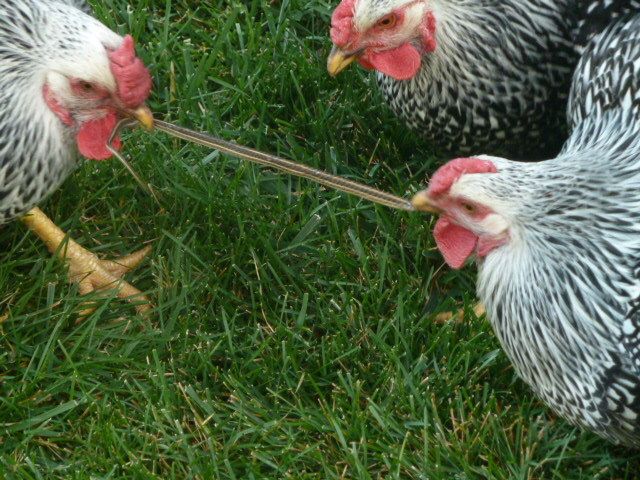
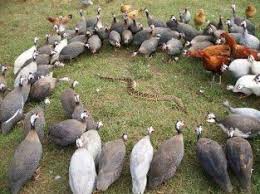
Identifying Snake Predation
- Snakes eat eggs then regurgitate the shells. If you find a pile of eggshells that’s a good clue they’ve been in your nest boxes.
- Snakes swallow their food whole. If one of your birds has a wet head, assume a snake has attempted, and failed, to swallow them.
- Shed snake skins in your coop
- Missing eggs or chicks without a trace
Repellents
- From my reading repellents aren’t particularly effective. Snakes smell through taste and can’t smell from far away.
- Planting strong-smelling vegetation around the area adds another barrier for snakes: garlic, onions, rosemary, thyme or snakeroot.
- Some commercial products contain sulfur, which don’t work well. Studies have shown that snakes don’t show adverse reactions when they encounter high levels of sulfur.
- The Humane Society states that most snake chemical killers and repellents don’t humanely kill snakes or repel them.
Living With Snakes
- Take the time to learn more about snake identification and biology to avoid conflicts and misunderstandings.
- If you live in an area where snakes are a problem then you can also join a group like Free Snake Removal Directory to find relocators in your area.
- Capturing and transporting animals yourself may be against the law.
Trapping Snakes
- There are many types of snake traps. Some kill them while others like cones or funnels, humanely trap snakes.
- Minnow (funnel) traps are a safe means of trapping snakes. Put an egg in the trap and secure it with a clip. The snake can get in, but not out, which will allow you to relocate the snake.
- If you trap a live snake, make sure that it’s not poisonous before you handle it.
- Release the snake away from your chicken coop. You made need permission to release the snake anywhere off of your property.
- Avoid inhumane methods of killing snakes: sticky and snap traps, and the ingestion of golf balls and mothballs all result in slow and painful death.
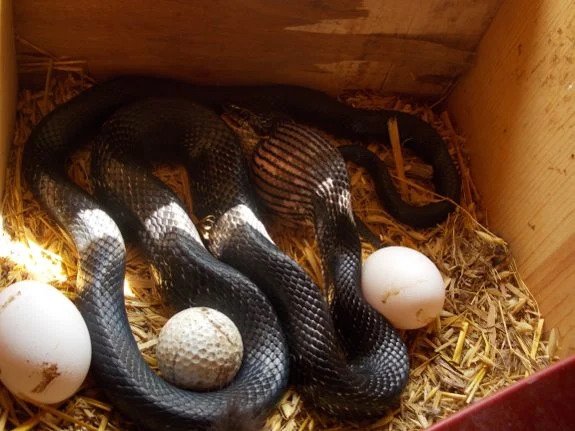
Credits: Backyard Chickens; Country Pests Featured Photo: Sara Allison
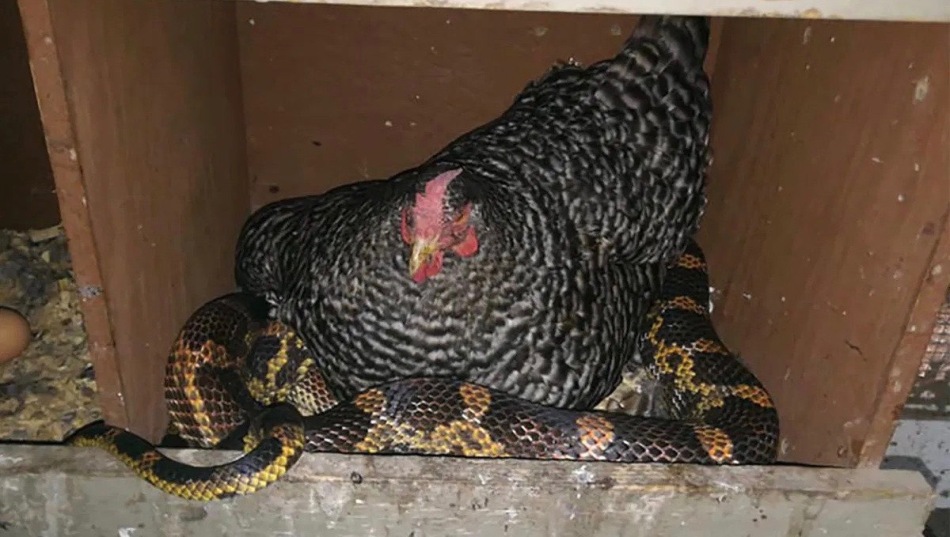
Friends of ours just found a very large rat snake in their duck house. I came back to read this again, just to give myself the peace of mind that we’re doing everything we should to keep snakes out of our coop.
LikeLiked by 1 person